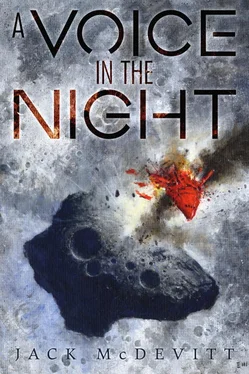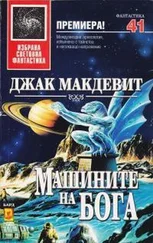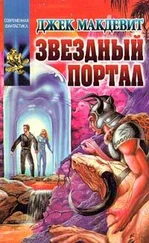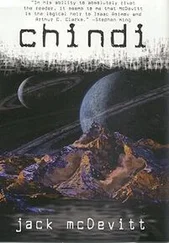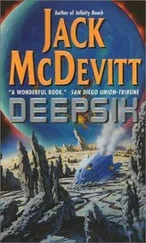“Then why,” asked Patti Kubik, “are we out here in the first place?” Patti was middle-aged, prematurely gray, possibly the most personable individual on Mars. Among a group of people who considered one another egomaniacs, she managed to maintain a good-humored humility. “We’re all idiots much of the time,” she’d told Warren once. “If you recognize that, it explains a lot.”
Sam Wynn was wearing a headset. He was tall, thoughtful, deliberate, dressed in an ivory-colored jacket with an Oakland Raiders logo. His brows drew suddenly together and he pressed both earphones. After a moment he nodded and then called for attention. “I’ve got some news,” he said. “The Delta team just found two metal disks on the north ridge. They’re approximately five meters in diameter, and they’re mounted on cradles that permit both lateral and horizontal movement.”
“Sounds like satellite dishes,” said Bryan Trahan. Bryan was among the younger members of the team. He was in his early twenties, tall, quiet, with clear handsome features and bright brown eyes.
“That’s what Clancey thinks,” said Sam. Clancey was the leader of Delta team.
“So where are the satellites?” asked Patti.
“Negative,” said Sam. “No satellites. We know that for a fact.”
Eddie pushed his thick fingers into the soil and nodded to himself. “Another tablet,” he said.
There was more: pots, cups, primitive tools. More tablets. Beads. Jewelry. A paperweight-sized pyramid that might have been made of diamond. (The diamond, if indeed that’s what it was, had a scarlet tinge in its depths.) And a long metallic rod with markings. Not unlike a gauge. They also dug up a strip of cable, which appeared to be made of plastic. Odd.
At the edge of the excavation, they found the remains of a wall. The wall was a high-tech alloy, and must once have enclosed the site, even as their own plastic dome now sealed it off.
Sam was listening to his earphones again. He was frowning. “Okay,” he said into the mike. “We’ve got something else.” He raised his voice so all could hear. “Somebody blew up Union Station in Chicago. During rush hour. They’ve got several hundred dead. Almost a thousand people hurt.” It was the latest in a wave of terrorist attacks by all kinds of disgruntled groups. Anybody with a grudge and enough money to buy a bombmaker could now make his irritation felt. (His was the correct usage, because to date no women had been charged.)
“Mars is starting to look good.” Judy Conroy was from Chicago. She was diminutive, with classic features and dark brown hair, cropped in a pageboy. Her blue eyes, which were usually bright and penetrating, smoldered.
“Crazies everywhere,” said Warren. Two weeks earlier, one group had bombed a nuclear power plant upwind of New York City in an unsuccessful effort to cause a meltdown.
“What’s this?” asked Murray. He was brushing soil away from a long, smooth stone surface.
“Careful,” said Maureen.
It was roughly one by three meters. Maureen took over direction, and within an hour they’d uncovered a tabletop with a solid base about a meter and a half deep.
“You know what it looks like?” said Bryan.
“Yeah.” Murray rubbed his hand across his balding scalp. “It looks like an altar.”
Warren knelt down to examine it. It was stained.
“I think we’re off to a good start,” said Maureen. She sliced a strip off her steak, tasted it, and nodded her approval. We’d secured a corner table, away from the Baranovians. Down on the beach, a few die-hard bathers were still in the water, even though the evening was turning cool.
“We should be,” I said. Her artifacts had been damned good to start with, and she’d taken my suggestions and improved on them. “How long did it take you to bury the stuff?”
She looked out across the open field at the awning which marked the dig site. The ground was muddy. Unfortunately, the dome that held back the Martian vacuum could not keep out a terrestrial rainstorm. They’d all got drenched, and some had even retreated to the dining hall or their individual quarters. (An outdoor wedding had also taken a hit that afternoon.) But a half-dozen of the hardier Baranovians had hung on, cutting down through the soil until the urns and tools and gadgets had been recovered and recorded. And until the altar lay exposed.
There’d been visitors. Neighbors of Skyhawk, and guests from the wedding party, all curious as to why these people were digging a large hole in the lawn, had gathered outside the perimeter. Sam had set himself to intercept them, to keep them at a distance. He’d answered their questions as best he could. Some had seemed interested; others had smiled and moved on.
“The blood on the altar,” Sam said. “That’s a great idea. Where are we going with this?”
Only Maureen and I knew the scenario. “You think it’s blood?” I asked innocently.
“Sure,” he said. “What else? I’ve seen your work, Jake. You never miss a chance to spill blood.”
I was hurt by the comment, and I was trying to think how to respond when Bryan joined us. His plate was heaped high with roast beef and mashed potatoes. “Interesting afternoon,” he said. “Do you expect we’ll be able to finish with the dig tomorrow?”
Maureen was slow to respond. She approved of Bryan, who was bright and intense. The kind of young man who would go far. “Yes,” she said finally. “If we were doing this in real time, this kind of excavation might take weeks. But we’ll wrap it up about noon.”
“Then what?”
She glanced at me. “Then,” I said, “we’ll withdraw into the field station and try to see what we have.”
Bryan was wearing a T-shirt with a silhouette of Abraham Baranov, the dates of the seminar, and the motto Mars or Bust . Several of the participants had them by now. He nodded, tried the roast beef, stirred some sweetener into his iced tea, and buttered a roll. “When do we get to the AI?” he asked.
Startled, I looked suspiciously at Maureen. She shook her head no. She hadn’t told him. But nobody else knew the scenario.
“Bryan, what makes you think there’s an AI?”
“Well,” he said, “I don’t see where else you could go with all this. Anyway, I’ve read your work.” He shrugged.
I was insulted again. But I hid my feelings behind a casual smile. “There are all kinds of possibilities,” I said.
When Maureen and I were alone again, a half hour later, she let her dismay show. “What do we do?” she asked.
I’d been thinking about little else. “It’s too late to change the scenario. We’ll stay with it.”
But I didn’t sleep well that night. Sam had suggested I was predictable. Bryan had demonstrated it.
The field station consisted of dormitory-style sleeping quarters for eight, a lab, a maintenance shack, a kitchen and dining room, a communication center, and a rec room. Additional support modules had been established outside. Their domes gleamed in the ruddy sunlight.
In the morning, there was fresh news: preliminary analysis of the North Ridge disks suggested they had been electrically powered. Two more had been found; and they were all in a straight line, horizontally placed, approximately fifty meters apart.
Sam, manning the radio console, picked up a series of UPI Worldline bulletins that suggested the Earthside situation was deteriorating. President Martin had declared a national emergency, promised a war on terrorists, and mobilized the entire array of federal agencies in the effort. In a related development, Congress passed a joint resolution calling for a mandatory death penalty for anyone convicted of a terror crime, or for any accessories in a terror crime. The president, vacationing at the Tampa White House, was quoted as saying he might consider calling for a suspension of habeas corpus until calm had been restored.
Читать дальше
